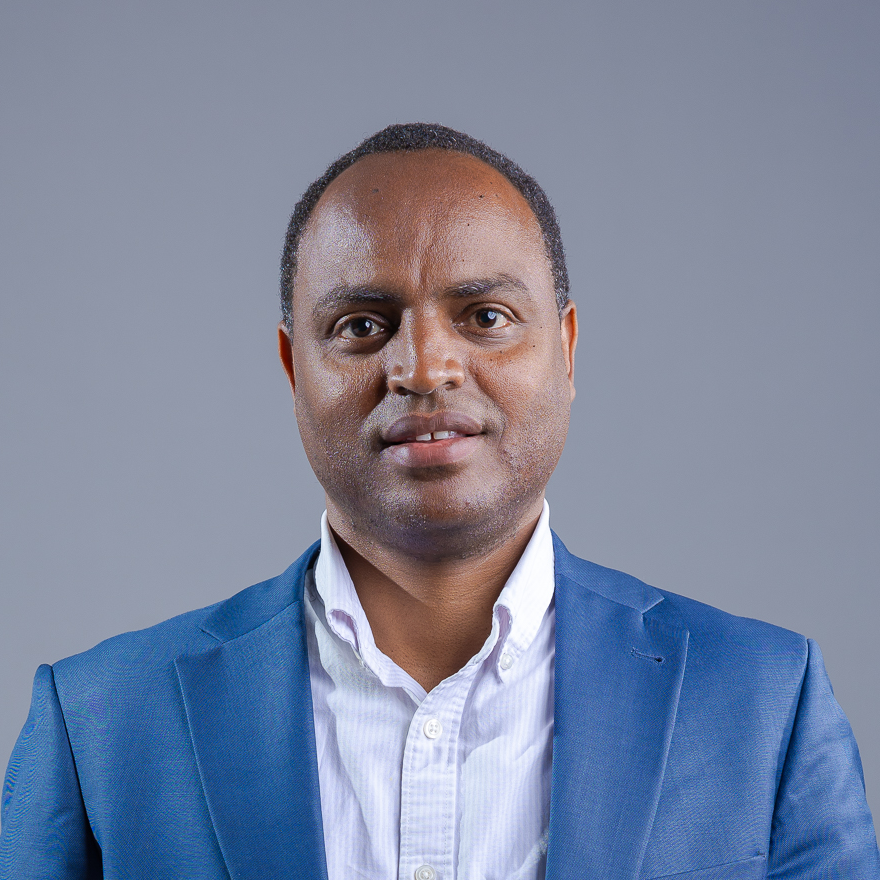CONTRIBUTORS

Eshetu Girma Kidane
Research Scientist

Charity Chao Shete
Communications Officer
As we observe the 2025 World Mental Health Day under the theme “Access to services: mental health in catastrophes and emergencies,” there is an urgent call for intentional, context-specific, and sustainable mental health services across Africa.
Across the continent, more than 116 million people continue to struggle silently with mental health conditions, their suffering compounded by historical trauma, economic constraints, and deep-rooted social stigma. Depressive disorders and suicide in particular exact a devastating toll on families and communities. Globally, suicide accounts for more than one in every 100 deaths and for each death there are 20 suicide attempts. More concerning is that the continent hosts six of the top ten countries with the highest suicide rates globally, with Lesotho leading with the world’s highest suicide rate.
Yet mental health remains one of Africa’s most underfunded health priorities, with a glaring gap between need and response. Globally, the median government spending on mental health stands at just 2% of total health budgets. This number translates to low-income countries spending as little as US$ 0.04 per person on mental health, a woefully inadequate amount that has remained unchanged since 2017. Beyond inadequate government funding, structural stigma prevents people from seeking help, resources remain scarce, and mental health services are poorly integrated into primary healthcare systems.
In 2024, for example, the World Health Organization reported that 24% of African countries had no standalone national mental health policies and there were only 2.2 mental health workers per 100,000 population. Rural populations are especially affected by the lack of mental health services, facing long travel distances, extended wait times, and high out-of-pocket expenses for services. Meanwhile, ongoing global and local crises—conflicts, poverty, and climate change—continue to divert already scarce resources away from mental health programs.
This scarcity shapes the lived experience of those seeking care. For years, researchers and health practitioners have attempted to advocate and strongly recommend that mental health patients seek help. However, seeking help, especially in our African context, is not as easy as it is often portrayed. When people do seek help, they are confronted with a struggling public health system; one that is ill-equipped to serve them. There is therefore, an urgent need to address these challenges and minimize the harmful consequences of inaction. To close this gap, African governments and development partners should explore the following proposed strategies.
- Revitalize indigenous practices: Given that the majority of Africans identify as either Christian or Muslim, these faiths—along with other indigenous religions—present a unique opportunity for positive engagement. Partnering with these institutions offers several advantages such as:
a) Affordability and trustworthiness as they can provide psychosocial support, help connect people to mental health services, and contribute resources at a low cost, while maintaining high credibility within communities;
b) Knowledge Exchange through sharing experiences and best practices regarding faith-based health services;
c) Building on Community Strengths – African communities have long-standing traditions of coming together through social gatherings, ceremonies, and rituals. These cultural practices can be powerful spaces for mental health support and healing.
d) Peacebuilding– Religions and other indigenous practices can also help minimize conflicts and restore peace, both of which are integral to effective mental health interventions. Making this work might mean rethinking how we currently deliver mental health services and moving away from institution-based care.
- Integrate mental health into primary health care: We need to train primary healthcare workers to handle mental health issues, and not limit care to specialists. This approach, which the WHO calls task shifting, makes mental health care more accessible and affordable, especially for vulnerable groups like teenagers and people in crisis situations.
- Enhance public–private partnerships: collaborate with the private health institutions and media outlets, to subsidize mental health services and promote mental health awareness. For example, media houses can establish partnerships to raise awareness about mental health and promote use of existing services.
- Optimize digital solutions: Digital access among the African population is rising rapidly which opens up new ways to support young people’s mental health. Social media influencers and AI-powered tools can help deliver mental health information and support directly to teenagers and young adults through smartphones and online where they already spend most of their time.
- Strengthen global health diplomacy and decolonial approaches: Develop skilled African health diplomats to advocate for resources, push back against harmful industries, and help countries rely less on outside donors. Crisis situations may create fertile ground for increased activities of unhealthy commodity industries such as tobacco and alcohol industries, as people may increasingly consume their products as ‘coping strategies.’ Governments should therefore strengthen policies and strategies to regulate these industries. To counter colonial legacies and residuals such as the exploitation of skilled labor and environmental pollution as a result of their activities, governments should intentionally protect their citizens and their environments through smart policies and strategies.
Conclusion
Addressing Africa’s mental health crisis will not be easy. However, the continent has shown remarkable resilience in the face of other health challenges. Building on this foundation, a future where mental health care is accessible and integrated into communities is within reach. This vision is achievable, but only if we act decisively. The strategies outlined here offer a roadmap; what remains is the collective will to walk it.
At the African Population and Health Research Center (APHRC), we are committed to leading this path through a life-course approach—one that continuously addresses mental health needs from pre-birth through different life stages. For the sake of 116 million Africans and countless generations to come, we must begin that journey today.